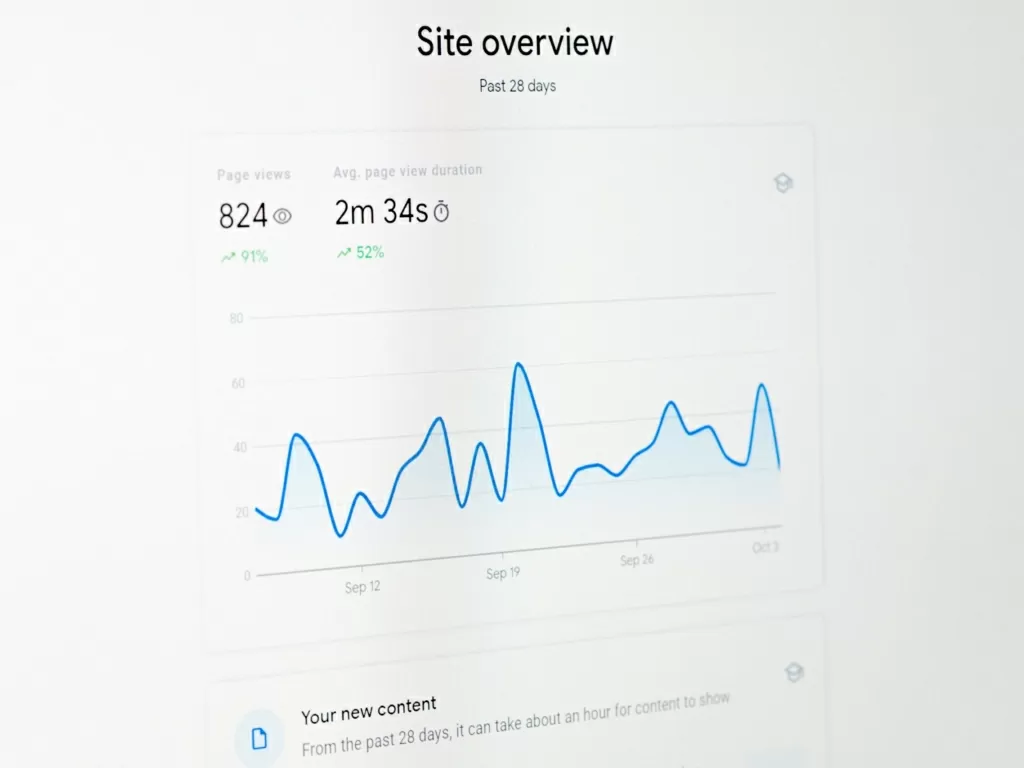Is SEO for eCommerce Necessary?

Many entrepreneurs find themselves at a crossroads regarding whether to focus on SEO. Most use paid ads or promotions as a means of advertisement. Understanding that most first-time visitors come to your site via search results would be prudent. Your page having low visibility in SERPs can harm your entire business model. Let’s find out […]
Is On-Page Optimization Necessary for SEO?

A thing of beauty is joy forever. That is exactly what a well-optimized website makes its users feel. On-page optimization makes the website relevant, informative, and easy to navigate. It provides users with a stellar experience that keeps them returning for more. But the question is, does it help with page ranking? This article discusses […]
Is Backlinking Necessary for SEO?

Did you know that the first iteration of search giant Google’s algorithm included backlinks? Google has made many changes to its search algorithm over the years, but backlink is still a prominent signal determining page rank. A strong backlink profile indicates that other reputable websites vouch for the quality of your content. This article explores […]
Is Content Necessary for SEO?

SEO helps your page appear higher in search engine results. Search engine rankings are influenced by technical SEO and user experience. But without high-quality content, your chances of achieving success with SEO are slim. Let’s find out if content is necessary for SEO. Is Content Necessary for SEO? Absolutely! Search engines aim to provide users […]
How Much Should You Spend on SEO In 2024?

Your website is a visiting card, store, and product information page rolled into one. It is a bridge that connects businesses with potential customers online. When done correctly, SEO can propel your website to the top of search results. It makes it easier for end users to discover your products and services. High-quality SEO requires […]
Landing Pages vs Blog Posts – Which is Best for SEO?

What came first, the chicken or the egg? Some questions beg you to rack your brains to find answers. Another question in a similar vein is which tool between a landing page or blog post is best for SEO. Any marketer worth his salt knows that they are both powerful ways to market your website. […]
Top 5 Best SEO Practices for E-Commerce Websites

Driving more traffic is the foremost goal of any e-commerce website. However, the challenge lies in bringing visitors to your site without investing in advertising and marketing. The solution to this is mastering e-commerce SEO. Here are the top five best SEO practices to stay ahead of the competition. Perform Keyword Research Focused on Buyer […]
How to Find Organic Search Traffic in Google Analytics

Organic search traffic is traffic that arrives at your website from a search engine such as Google, Yahoo, or Bing. This traffic is free, and it is an important source of leads and sales for many businesses. If you want to maximize your organic search traffic, you need to understand how to find it in […]
How to Improve Organic Search Traffic: 10 Tips and Tricks

Organic search traffic can be the lifeblood of any website. It’s free, it’s targeted, and it converts. But how do you go about improving your organic search traffic? In this article, we’ll give you 10 tips and tricks to help you get more organic search traffic. 1. Content Creation The most important factor in SEO […]
What Are Target Keywords and Why Are They Important for SEO?

Target keywords are the foundation of any good SEO strategy. Without them, it would be nearly impossible to rank in search engines for the terms that matter most to your business. If you’re new to SEO, you may have heard the term “target keywords,” but you may not be entirely sure what they are or […]
